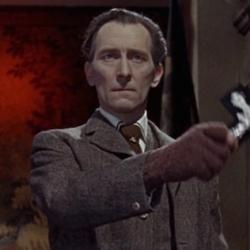Joseph Heath and Andrew Potter (Nation of Rebels) characterize the 1999 film, American Beauty, as “a completely uncompromising recitation of ’60s countercultural ideology. It’s the hippies versus the fascists, still slugging it out three decades after Woodstock.”
The characters split neatly into two groups: “the countercultural rebels: the narrator, Lester Burnham; his daughter, Jane; and the neighbor kid, Ricky Fitts.” They are the good guys because “they all smoke dope, behave in nonconformist ways (and are thus ostracized by the community) and have a deep appreciation of the ‘beauty’ that surrounds them.” The fascists include “Lester’s wife, Carolyn; Ricky’s father, Colonel Frank Fitts; and the ‘King of Real Estate,’ Buddy Kane. You can tell they’re fascists because they are all neurotic, sexually repressed, obsessed with what others think of them, and they like to play with handguns. Just to drive the point home, Colonel Fitts is shown beating his son while screaming about his need for order and discipline.”
The film follows Lester’s awakening from his suburban slumber. He frees himself when he writes “a job description that says he spends most of his day masking his contempt for [those] in charge.” He takes a leap forward when he starts getting marijuana from Ricky. From there “Lester stages a complete juvenile regression. He becomes the walking, talking id. He blurts out all the things that we are constantly thinking but never have the courage to say.” He quits his job and fantasizes about his daughter’s cheerleader friend.
The fascists try to force him back into middle class conformity, and they finally succeed when Col. Fitts shoots Lester to prevent Lester from revealing that he’s a homosexual. Heath and Potter commend the film for hanging “on to the essential bleakness of the original Freudian vision. In the view of the world articulated by American Beauty, it is simply not possible to be a well-adjusted adult in our society.” You are either forced into fascist conformity or regress into infantile adolescence. The best one can hope for in this tragic Freudian world is a kind of grudging adjustment to reality.
It’s a pervasive myth, powerful in part because it has some of the ring of truth (some forms of modern life can be deadening) and in part because it appeals to our American fantasies of youth and freedom.















